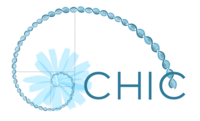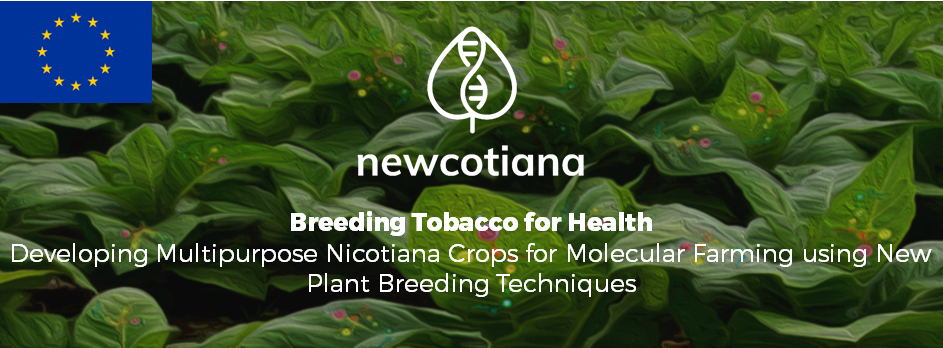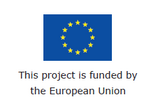Completed Projects with IPB as Partner
LIGNEERING
Metabolic and Process Engineering for Synthesis of Monolignols
This project aims to produce phenolics using a biotechnological approach. Such compounds are found e.g. in plants, where they are important precursors to biopolymers or contribute to taste, color, flavor and nutraceutical properties of crops. Due to their often limited availability from plants source, this project is focused on the production of plant phenolics by microbial fermentation. Therefore, glucose as a renewable feedstock will be used.
LIGNEERING is a consortium from two academic partners, the Martin-Luther-Universität Halle-Wittenberg and the Leibniz Institute of Plant Biochemistry. The combined expertise of the partners facilitates the creation of microbial producer strains for selected phenolics (e.g. monolignols), which includes the development of suitable biocatalysts, their integration into the microbial hosts and the technical implementation of large-scale fermentations. Thus, a “green”, biosynthetic and high-yield production platform will be established, which will help to substitute similar products made from fossil carbon and to significantly reduce CO2 in the future.
Funding: European Regional Development Fund, ERDF (Project No. W13011216)
Funding Period: 06/2021 – 12/2022
Coordinator: Martin-Luther-Universität Halle-Wittenberg, Institute of Pharmacy, Dep. Downstream Processing
Contact Person: Prof. Markus Pietzsch
Partner: Leibniz-Institut für Pflanzenbiochemie (IPB)
Contact at IPB: Prof. Ludger Wessjohann
PhytoHäm
New plant-derived active substances for the treatment of elderly people suffering from chronic blood diseases
The risk to suffer from acute and chronic diseases of the blood system is significantly increased in elderly people. Due to its symptoms – e.g. weakness, breathlessness and cognitive dysfunctions – anemia causes severe restrictions of the mental and physical general condition on the one hand. On the other, age-related „ excess of blood“ (polyglobulia) enhances the risk of severe chronic myeloproliferative disorders (CMPD) and symptoms like thromboses, myocardial infarction or stroke. Therefore, anemia and CMPD in elderly people are main reasons for high morbidity resulting in more frequent hospital stays or entering a nursing facility, and finally increased mortality. Those disorders of the blood system are thus dramatically limiting the autonomy of elderly people, whereby the demographic change will intensify this problem steadily.
It is the main goal of the PhytoHäm project to improve the chances of elderly people suffering from a chronic blood disorder to continue their autonomous life. For that purpose, we are seeking for specifically active and well-tolerated plant-based substances that could be used as novel dietary supplements (nutraceuticals) or – in case of very strong biological activity – could be further developed as pharmaceutical drug. Many plant ingredients provide anti-oxidative and anti-inflammatory effects as well as many other properties with high value for human nutrition and medical care. The PhytoHäm project was created to combine the complementary expertises and resources of both cooperation partners, in order to investigate the effects and application potentials of selected plant ingredients and plant extracts, respectively, with respect to the therapy of elderly people suffering from chronic blood disorders.
Funding: European Regional Development Fund, ERDF
Part of the Research Association Autonomie im Alter - Modellregion Sachsen-Anhalt
Funding Period: 07/2019 - 09/2022
Coordinator: Otto von Guericke University Magdeburg
Coordinator contact: Prof. Dr. med. Thomas Fischer, University Hospital Magdeburg
Partner: Leibniz Institute of Plant Biochemistry, IPB, Department of Bioorganic Chemistry
Contact at IPB: Prof. Dr. Ludger Wessjohann and Dr. Robert Rennert
HyperSpEED
Hypericum multi Species Exploration of Extracts Diversity as contribution to improving the quality of life in old age
The cognitive decline in old age is both a medical and social problem of increasing importance in aging societies. This project shall contribute to the development of plant-based products for the improvement and ideally also treatment of age associated diseases and finally support the autonomy of older people.
 Previous studies demonstrated the beneficial effects of the well-known St. John’s wort (Hypericum perforatum) against depression, dementia and cancer. The HyperSpEED project will now explore the diversity of the genus Hypericum (with more than 460 species) and the associated variability of bioactive constituents in order to make this chemodiversity accessible for the development of new natural products for medicinal research and to lay a basis for the breeding and cultivation of the respective species. Therefore, metabolite composition, gene expression and phenotypic data will be combined in a holistic multi-disciplinary approach.
Previous studies demonstrated the beneficial effects of the well-known St. John’s wort (Hypericum perforatum) against depression, dementia and cancer. The HyperSpEED project will now explore the diversity of the genus Hypericum (with more than 460 species) and the associated variability of bioactive constituents in order to make this chemodiversity accessible for the development of new natural products for medicinal research and to lay a basis for the breeding and cultivation of the respective species. Therefore, metabolite composition, gene expression and phenotypic data will be combined in a holistic multi-disciplinary approach.
At least 30 different species of St. John's wort species are cultivated under controlled conditions and are genetically investigated at the IPK Gatersleben. Within the department of Bioorganic Chemistry at the IPB, researchers will study the metabolite composition of these plant samples and optimize the extraction processes. Selected compounds will be isolated and their structures elucidated. The biological effects of selected extracts and metabolites are then evaluated at the IPB and in cooperation with external partners. Hypotheses about the biosynthesis of relevant constituents will be validated with the help of molecular biology approaches. These investigations will provide a basis to identify species and chemotypes suitable for the development of new Hypericum-based products for specific medicinal applications.
Funding: European Regional Development Fund, ERDF (Project No. ZS/2019/07/99747)
Part of the Research Association Autonomie im Alter - Modellregion Sachsen-Anhalt
Funding Period: 06/2020 - 12/2022
Coordinator: Leibniz Institute of Plant Genetics and Crop Plant Research (IPK)
Contact at the IPK: Dr. Paride Rizzo
Contact at the IPB: Dr. Katrin Franke and Prof. Dr. Ludger Wessjohann
Tri-Sustain
Partnership for sustainable solutions Sub-Saharan Africa & Germany
This interdisciplinary project aims to identify ecologically endangered and therapeutically valuable plants from Sub-Saharan countries and to ensure their sustainable use. Tri-Sustain implements a three‐pronged integrated approach towards the goals of bioeconomic value‐chains, ecological and therapeutic sustainability. The accompanying Graduate School further ensures personnel and partnership sustainability.
Funding: Federal Ministry of Education and Research, German Academic Exchange Service
Coordinator: Martin-Luther-University Halle-Wittenberg
Project leader: Prof. Peter Imming (Institute of Pharmacy)
Partners: Leibniz Institute of Plant Biochemistry (IPB) and Universities from Tanzania, Botswana and Ethiopia
Contact at the IPB: Dr. Norbert Arnold
Website: trisustain.uni-halle.de
CHIC project
Chicory as a multipurpose crop for dietary fibre and medicinal terpenes
The CHIC project aims to develop chicory (Cichorium intybus L.) varieties that can be used to produce dietary fibre with enhanced prebiotic effects to promote gut health. At the same time, given its biosynthetic capacity, high yields and low agronomic requirements, chicory has significant potential as production host in molecular farming. CHIC aims to harness this potential to cultivate chicory for the extraction of other types of health-related compounds (terpenes) as potential lead molecules for drug development. To achieve this, new chicory varieties must be developed. However, conventional chicory breeding is currently exceptionally time-consuming and thus, chicory is a highly relevant case where new plant breeding technologies can make a real difference. Furthermore, CHIC explores the interactions between technological potential and societal acceptance of modern plant breeding. The consortium will evaluate the technological performance of these new plant breeding technologies, as well as the safety, environmental, regulatory, socio-economic and broader societal issues associated with them.
Funding: Horizon 2020 by the European Union (Project ID 760891)
Funding period: 01/2018 - 06/2022
Coordinator: Wageningen University & Research, Niederlande
Contact: CHIC Project Coordinator Dirk Bosch
Partners: Leibniz Institute of Plant Biochemistry (IPB) and others
(Consortium including 17 partners from 11 European nations)
Contact at the IPB: Prof. Alain Tissier
Website: www.chicproject.eu
NEWCOTIANA
Breeding Tobacco for Health
The NEWCOTIANA project is a research and innovation initiative that combines several new plant breeding techniques (NPBTs) to produce medical and cosmetic products in tobacco plants. Taking advantage of cutting-edge molecular breeding methodologies, researchers will develop new varieties of tobacco and its wild relative Nicotiana benthamiana to produce added-value compounds such as antibodies, vaccines and drugs in a sustainable manner. By applying new NPBTs such as the CRISPR technique to the breeding of tobacco and other related species, the traditional cultivation of tobacco will be revalued, thus providing it with new uses compatible with health. NEWCOTIANA is an excellent testing ground for NPBTs and their applications for sustainable agriculture in the EU. The project will produce reliable data on the utility, robustness, efficiency and safety aspects of a group of four selected NPBTs when applied to the breeding of both conventional and unconventional crop traits. As a result, NEWCOTIANA aims to provide industry, policy-makers and consumers with the experimental evidence and the social communication channels that will facilitate the decision making process for the adoption of NPBTs.
Funding: Horizon 2020 by the European Union (Project ID 760331)
Funding period: 01/2018 - 06/2022
Coordinator: Joint Institute of Molecular and Cellular Biology of Plants (IBMP-CSIC) Valencia, Spain
Contact: Diego Orzaez
Partners: Leibniz Institute of Plant Biochemistry (IPB) and others
(Consortium including 19 partners)
Contact at the IPB: Dr. Sylvestre Marillonnet
Website: newcotiana.org
de.NBI
German Network for Bioinformatics Infrastructure
The 'German Network for Bioinformatics Infrastructure – de.NBI' is a national infrastructure supported by the Federal Ministry of Education and Research providing comprehensive, high-quality bioinformatics services to users in life sciences research and biomedicine. The partners organize training events, courses and summer schools on tools, standards and compute services provided by de.NBI to assist researchers to more effectively analyse their data. The IPB is a de.NBI partner and member of the Center for Integrative Bioinformatics (CIBI). It maintains and integrates metabolite annotation software into the de.NBI infrastructures and provides service around standards-compliant data management and reuse of data from metabolomics experiments.
Funding: Federal Ministry of Education and Research (Project ID 031L0107)
Period: 11/2016 - 12/2021
Coordinator CIBI: Prof. Dr. Oliver Kohlbacher, Eberhard-Karls-Universität Tübingen
Partners CIBI:
Freie Universität Berlin (FUB),
Eberhard-Karls-Universität Tübingen (EKUT),
Universität Konstanz (UKON),
Leibniz Institute of Plant Biochemistry Halle (IPB),
Max Planck Institute of Molecular Cell Biology and Genetics Dresden (CBG)
Contact at the IPB: Dr. Steffen Neumann
Website: www.denbi.de
Biohealth
Indonesian Plant Biodiversity and Human Health
The aim of this project is to initiate the scientific and technological cooperation between Indonesian and German partners and to jointly contribute to the identification of naturally occurring substances in Indonesian plants and fungi with antiinfective effects, potentially suitable for the development of new active pharmaceutical compounds.
Funding: Federal Ministry of Education and Research (ID 16GW0123)
Funding period: 05/2015 - 10/2019
Coordinator: Leipzig University
Contact: Prof. Müllner-Riehl
Partners: Leibniz Institute of Plant Biochemistry (IPB),
Indonesian Institute of Sciences, Research Center of Biology (LIPI), Indonesia,
Bogor Agricultural University, Pharmaceutical Biology, Indonesia
Contact at the IPB: Prof. Ludger Wessjohann
Website: Biohealth Project Website
DFG Research Training Group 1591
Posttranscriptional control of gene expression: mechanisms and role in pathogenesis
The RTG 1591 includes twelve different groups from the Faculty of Medicine, the Faculty of Natural Sciences and the Leibniz Institute of Plant Biochemistry organized in three sections (molecular mechanisms, human diseases and plant physiology and immunity). The aim is to explore how the post-transcriptional control of gene expression determines cell fate and diseases on the basis of animal and plant model organisms. The IPB participates in the RTG 1591 with the project "The role of natural antisense long non-coding RNAs in plants", led by Dr. Selma Gago Zachert from the Molecular Signal Processing Department.
Funding: DFG (Project No. 105533105)
Funding period: since 2010
Coordinator: Martin-Luther-University Halle-Wittenberg
Contact: Prof. Stefan Hüttelmaier
Partner: Leibniz-Institut für Pflanzenbiochemie (IPB)
Contact at the IPB: Dr. Selma Gago Zachert
Website: www.medizin.uni-halle.de/grk1591
DrugBioTune
Process- and target-directed development of the catalytic and regulatory plasticity of drug biosynthesis pathways
DrugBioTune is part of the InfectControl2020 research alliance that aims at developing new strategies for early recognition, control and successful approaches to fight infectious diseases. Specific objectives of DrugBioTune are the development of innovative techniques for the discovery of natural product-based antibiotics, antimycotics, and antiparasitics, the identification of new antibacterial, antifungal and antiparasitic agents, the evaluation of their potential for human and veterinary as well as agrochemical applications.
Funding: Federal Ministry of Education and Research (Project ID 03ZZ0808C)
Funding period: 01/2016 - 12/2018
Coordinator: Leibniz Institute for Natural Product Research and Infection Biology (HKI) Jena
Contact: Prof. Dr. Axel Brakhage
Partners: Leibniz Institute of Plant Biochemistry (IPB) and others
Contact at the IPB: Professor Ludger Wessjohann
Website: www.infectcontrol.de
SOLUTIONS
Solutions for present and future emerging pollutants in land and water resources management
SOLUTIONS is a collaborative project funded by the European Commission to develop new and improved tools, models, and methods to support decisions in environmental and water policies. The overall goal of the project is to produce consistent solutions for the large number of chemicals (legacy, present and future emerging) posing a risk to European water bodies with respect to ecosystems and human health.
Funding: FP7 Environment by the European Union (Project ID 603437)
Funding period: 10/2013 - 09/2018
Coordinator: Helmholtz Centre for Environmental Research (UFZ), Leipzig
Contact: Dr. Werner Brack
Partners: Leibniz Institute of Plant Biochemistry (IPB) and others
(Consortium includes 39 partners from 17 nations)
Contact at the IPB: Dr. Steffen Neumann and Christoph Ruttkies
Website: www.solutions-project.eu
BE LOW
Analysis of root traits to test for environmental filtering and niche complementarity in grassland communities
The project "BE LOW" aims to predict in which local neighbourhood of a regional species community a newcoming plant might perform best. There will be a particular emphasis on traits with a functional link to belowground processes, such as root traits and root exudates. Plant roots secrete a large number of compounds into the rhizosphere. The pattern of these secreted compounds, which can be analysed by mass spectrometry-based methods, is genetically determined but also modulated by environmental factors. The acquired data will be used to test if survival and performance can be predicted from the statistical probability of co-occurrence of a species in a specific local neighbourhood. In summary, the combination of functional biodiversity research, community ecology and functional root research will fill an important gap between above- and belowground processes.
Funding: DFG (Project No. 61580740)
Subproject of SPP 1374: Exploratories for Long-Term and Large-Scale Biodiversity Research (Biodiversity Exploratories)
Funding period: 2008 - 2018
Partners: Leibniz Institute of Plant Biochemistry (IPB),
Martin-Luther-University Halle-Wittenberg,
German Centre for Integrative Biodiversity Research (iDiv)
Contact at the IPB: Prof. Dierk Scheel
PhenoMeNal
A comprehensive and standardised e-infrastructure for analysing medical metabolic phenotype data
In the coming decade a significant number of the 500.000.000 European (EU/EEA) citizens will have their genome determined routinely. This will be complemented with much cheaper acquisition of the metabolome of biofluids which will link the genotype with metabolome data that captures the highly dynamic phenome and exposome (i.e. all the external influences on the human organism) of patients. This will enable the development of a truly personalised and evidence-based medicine. The collection of such information will pose dramatic demands on biomedical data management and compute capabilities in Europe. Predications are in the order of exabyte amounts of biomedical phenotyping data. PhenoMeNal will develop and deploy an integrated, secure, permanent, on-demand service-driven, privacy-compliant and sustainable e-infrastructure for the massive amount of data that will be generated by metabolomics applications now entering research and clinic.
Funding: Horizon 2020 by the European Union (Project ID 654241)
Funding period: 09/2015 - 08/2018
Coordinator: European Molecular Biology Laboratory (EMBL-EBI) Hinxton, UK
Partners: Leibniz Institute of Plant Biochemistry and others
(Consortium including 13 partners from 7 nations)
Contact at the IPB: Dr. Steffen Neumann
Website: phenomenal-h2020.eu
RADAR
Research Data Repositorium
The aim of the RADAR project is to set up and establish an interdisciplinary infrastructure for long-term preservation and publication of research data. These services should facilitate data management and enhance the reuse of research data, in a discipline-agnostic way. As a scientific project-partner, the IPB actively participates in the development and maintenance of a generic metadata scheme, while using own NMR data to test and verify the functionality of the system during its progress.
Funding: DFG (Project No. 237143194)
Funding period: 09/2013 - 08/2016
Partners: Leibniz Institute of Plant Biochemistry (IPB),
German National Library of Science and Technology (TIB) Hanover,
FIZ Karlsruhe – Leibniz Institute for Information Infrastructure,
Steinbuch Centre for Computing (SCC) at the Karlsruhe Institute of Technology (KIT),
Faculty for Chemistry and Pharmacy at the Ludwig-Maximilians-University Munich
Contact at the IPB: Dr. Filipe Furtado, Dr. Andrea Porzel, and Prof. Ludger Wessjohann
Website: www.radar-projekt.org
DFG Collaborative Research Center 648
Molecular mechanisms of information processing in plants
The aim of this CRC 648 is the elucidation of the molecular mechanisms of information transfer between plants and pathogens and within plant cells. The partners are the MLU Halle-Wittenberg, the IPK Gatersleben and the IPB, which is responsible for 3 projects: PAMP-mediated pathogen defense in Solanum tuberosum (Prof. Sabine Rosahl), Functional analysis of MAP-kinase cascades in plant immunity response (Dr. Justin Lee and Prof. Dierk Scheel) and Function of IQD1, founding member of the Arabidopsis IQD protein family (Dr. Katharina Bürstenbinder and Prof. Steffen Abel).
Funding: DFG (Project No. 5486253)
Funding period: 2005 - 2016
Coordinator: Martin-Luther-University Halle-Wittenberg
Contact: Prof. Ulla Bonas
Partners: Leibniz Institute of Plant Biochemistry (IPB),
Leibniz Institute of Plant Genetics and Crop Plant Research (IPK) Gatersleben
Website: www.sfb648.uni-halle.de
Calcium-regulated transcription in plant innate immunity
Innate immunity is an ancient form of defense against microbial infection that is based on recognition of small pathogen-specific molecules by special receptors and a subsequent signaling cascade within the plant cells. The aim of the project is to elucidate the Calcium-mediated cellular processes from early perception to the transcription machinery with a focus on the analysis of MAPKs in Calcium-regulated transcription during plant immune response. The results of this research will in the long term contribute to improve the disease resistance of plants. The project is carried out by the Tel Aviv University, Israel (as coordinator), the Freie Universität Berlin and the IPB, and receives funding from the German-Israeli Foundation for Scientific Research and Development. Contact at the IPB: Prof. Dierk Scheel and Dr. Justin Lee.
Funding: German-Israeli Foundation for Scientific Research and Development (I-149-204.1-2012)
Funding period: 2013 - 2015
Coordinator: Tel Aviv University
Contact: Prof. Hillel Fromm
Partners: Leibniz Institute of Plant Biochemistry (IPB),
Freie Universität Berlin
Contact at the IPB: Prof. Dierk Scheel and Dr. Justin Lee.
COSMOS
COordination of Standards in MetabOlomicS
This EU-funded project is a global effort to enable free and open sharing of metabolomics data coordinated by the EMBL European Bioinformatics Institute. The project is named „Developing an efficient e-infrastructure, standards and data-flow for metabolomics and its interface to biomedical and life science e-infrastructures in Europe and world-wide” and has brought together 14 European metabolomics data providers to set and promote community standards. The aim is to establish an e-infrastructure for storing and analyzing metabolomics data and integrating them with other -omics data sets from the life sciences.
Funding: FP7 Infrastructure of the EU (Project ID 312941)
Funding period: 10/2012 - 09/2015
Coordinator: European Molecular Biology Laboratory (EMBL), Heidelberg
Partners: Leibniz Institute of Plant Biochemistry (IPB) and others
(Consortium including 15 partners)
Contact at the IPB: Dr. Steffen Neumann
Website: cosmos-fp7.eu
DFG Priority Program 1212
Plant-Micro: Microbial reprogramming of plant cell development
Microbial pathogens rob their hosts of nutrients and can kill plants, while symbiotic fungi and bacteria provide phosphate and nitrogen and improve plant health. Despite the differences there are numerous parallels between these two types of interaction. Both microbial pathogens and symbionts reprogramme plant cellular development. This Priority Programme aims to uncover the molecular switches that both cause and restrict disease in one system and lead to symbiosis in another. The IPB took part with 4 projects: Jasmonate detection (Prof. Bettina Hause), Calcium signalling induced by MAMPs from pathogenic and beneficial organisms in Arabidopsis thaliana (Dr. Justin Lee), Non-host resistance of Arabidopsis thaliana against Phytophthora infestans (Prof. Sabine Rosahl and Prof. Dierk Scheel), and Analysis of the PUB22 ubiquitin ligase mediated regulation of exocyst-dependent exocytosis during plant immune responses (Dr. Marco Trujillo).
Funding: DFG (Projektnr. 14250334)
Funding period: 2007 - 2014
Coordinator: Ludwig-Maximilians-University Munich
Partner: Leibniz Institute of Plant Biochemistry (IPB) and others
Contact at the IPB: Professor Dierk Scheel
ProNet-T3
Protein Competence Network - Tools, Targets, Therapeutics
The research cluster ProNet-T3 funded as part of a BMBF funding program aimed at strengthening the already existing expertise in protein research in Halle. At the IPB, researchers worked on the subproject "Molecular Mechanisms of Plant Pathogen Defense through Pattern Recognition". The focus here was on plant defense of pests via recognition of so-called pathogen-associated molecular patterns (PAMPs). Possible pathogens are recognized by receptors in the plant and thus trigger a defense reaction via complex signal networks. The aim of this subproject was to functionally analyze relevant MAPK substrates and to elucidate the importance of phosphorylation of MAPK substrates for their stability, structure and activity. Furthermore, the mechanisms by which bacterial effector proteins alter the function of MAPK elements and thus allow a successful colonization of the plants were investigated.
Funding: Federal Ministry of Education and Research (Project ID 03IS2211B)
Funding period: 11/2009 - 10/2014
Coordinator: Martin-Luther-University Halle-Wittenberg (Spokespersons Professor Frank Bordusa, Professor Gunter Reuter),
Partners: Leibniz Institute of Plant Biochemistry (IPB),
Max Planck Research Unit for Enzymology of Protein Folding Halle,
Center for Integrated Protein Science (CIPSM) Munich,
Technical University Munich,
Max Planck Institute of Biochemistry (MPIB) Martinsried,
German Center for Neurodegenerative Diseases (DZNE) Bonn,
Probiodrug AG
Contact at the IPB: Prof. Dierk Scheel
Website: www.unternehmen-region.de/de/3919.php
BIONEXGEN
Developing the Next Generation of Biocatalysts for Industrial Chemical Synthesis
The BIONEXGEN collaborative project pursued the overall goal to develop key enzyme classes and technologies for use in eco-efficient manufacturing processes in the chemical industries. Biocatalysis - i.e. the use of natural catalysts, enzymes, to undertake chemical transformations of organic chemicals - has become much more commonplace in recent years, and it is now an important strategy in synthetic chemistry. BIONEXGEN focused on developing the next generation of biocatalysts tailored to the needs of the chemical producing industries. The IPB was involved with two of the project's work packages.
Funding: FP7-KBBE by the European Union (Project ID: 266025)
Funding period: 02/2011 - 01/2014
Coordinator: University of Manchester
Partners: Leibniz Institute of Plant Biochemistry (IPB) and others
(Consortium including 17 partners)
Contact at the IPB: Prof. Ludger Wessjohann
DFG Research Training Group 1026
Conformational Transitions in macromolecular interactions
The goal of RTG 1026 is to understand the relationship between protein folding and biological action. Protein folding from the denatured state, both in vitro and enzymatically controlled, is a focal point in Halle. Thirteen groups from different departments at the Martin-Luther-University Halle-Wittenberg try to examine the effects of such transitions on protein-lipid, protein-nucleic acid and protein-protein interactions at a biophysical, biochemical and cell biological level. Two groups at the IPB (Dr. Nico Dissmeyer and Prof. Steffen Abel) are associated members of the GRK 1026, which is coordinated by the MLU Halle-Wittenberg.
Funding: DFG (Project No. 373608)
Funding period: 2005 - 2013
Coordinator: Martin-Luther-University Halle-Wittenberg (Spokesperson Prof. Milton Stubbs)
Partner: Leibniz Institute of Plant Biochemistry (IPB)
Contact at the IPB: Prof. Steffen Abel und Dr. Nico Dissmeyer
Website: www.biochemtech.uni-halle.de/grk1026
ERA-PG PathoNet
Signaling to plant immunity responses
Dynamic signaling pathways regulate plant responses to pathogens by involving protein phosphorylation events. These events lead to specific stress-induced gene expressions, accumulation of plant hormones, and presumably also other metabolites. This project aimed to extend the knowledge on the level at and down-stream of signal perception. This includes regulation of protein phosphorylation, identification of target genes and complex protein associations as well as plant cell responses by metabolic changes.
Funding: DFG (Project No. 104959977), ERA-NET
Funding period: 2009 - 2013
Coordinator: University of Vienna
Partners: Leibniz Institute of Plant Biochemistry (IPB), Halle,
Max Planck Institute of Molecular Plant Physiology (MPI-MP), Potsdam-Golm,
Sainsbury Laboratory, UK
Contact at the IPB: Professor Dierk Scheel
TERPMED
Plant Terpenoids for Human Health: a chemical and genomic approach to identify and produce bioactive compounds
Plant secondary metabolites, e.g. terpenoids, are an important source of therapeutic drugs or drug leads. 25,000 terpenoids have been identified so far, but only a few of them have been tested for their medical efficacy. The TERMED project focused in particular on sesquiterpene lactones and phenolic diterpenes as these compounds have shown promising effects in the fight against cancer and neurological disorders. The group led by Prof. Alain Tissier researched the biosynthesis of carnosolic acid, a diterpenoid found in rosemary and Greek sage.
Funding: FP7-KBBE by the European Union (Project ID: 227448)
Funding period: 06/2009 - 05/2013
Coordinator: Universitat de Barcelona
Partners: Leibniz Institute of Plant Biochemistry (IPB) and others
(Consortium including 8 partners from 7 nations)
Contact at the IPB: Prof. Alain Tissier
Website: www.terpmed.eu
This page was last modified on 27 Jan 2025 27 Jan 2025 27 Jan 2025 04 Feb 2025 27 Jan 2025 27 Jan 2025 27 Jan 2025 04 Feb 2025 27 Jan 2025 27 Jan 2025 04 Feb 2025 27 Jan 2025 27 Jan 2025 04 Feb 2025 27 Jan 2025 27 Jan 2025 04 Feb 2025 27 Jan 2025 27 Jan 2025 04 Feb 2025 27 Jan 2025 27 Jan 2025 04 Feb 2025 27 Jan 2025 27 Jan 2025 04 Feb 2025 27 Jan 2025 27 Jan 2025 04 Feb 2025 04 Feb 2025 27 Jan 2025 27 Jan 2025 04 Feb 2025 27 Jan 2025 27 Jan 2025 04 Feb 2025 27 Jan 2025 27 Jan 2025 04 Feb 2025 27 Jan 2025 27 Jan 2025 04 Feb 2025 27 Jan 2025 27 Jan 2025 04 Feb 2025 27 Jan 2025 27 Jan 2025 04 Feb 2025 25 Mar 2025 25 Mar 2025 04 Feb 2025 25 Mar 2025 25 Mar 2025 04 Feb 2025 25 Mar 2025 25 Mar 2025 04 Feb 2025 25 Mar 2025 25 Mar 2025 04 Feb 2025 25 Mar 2025 25 Mar 2025 04 Feb 2025 25 Mar 2025 25 Mar 2025 04 Feb 2025 25 Mar 2025 25 Mar 2025 04 Feb 2025 25 Mar 2025 25 Mar 2025 04 Feb 2025 27 Jan 2025 .























